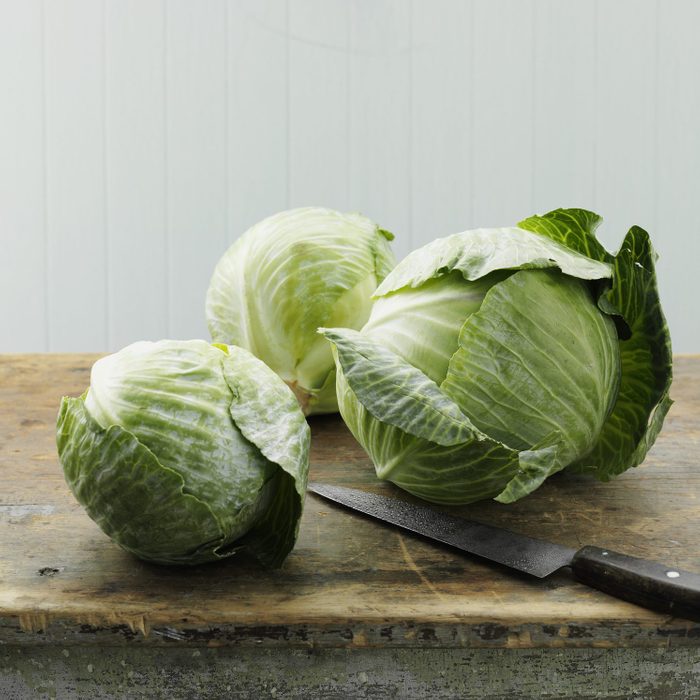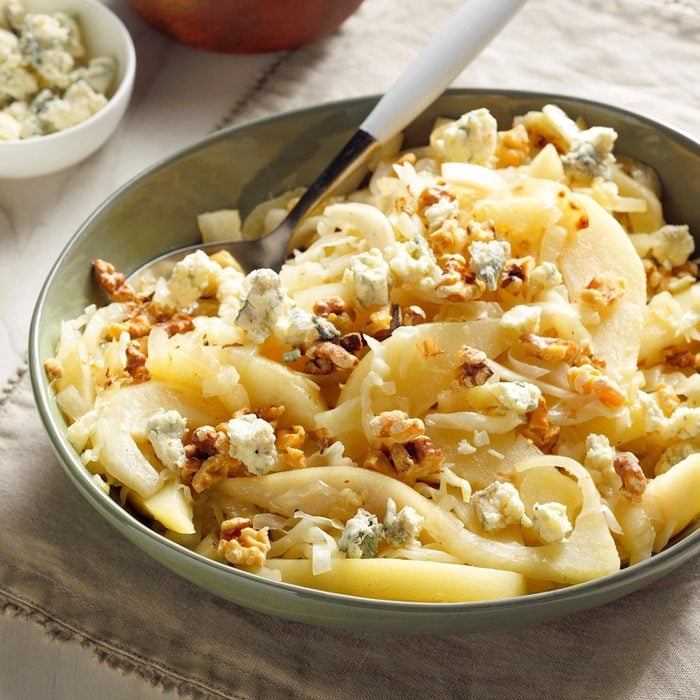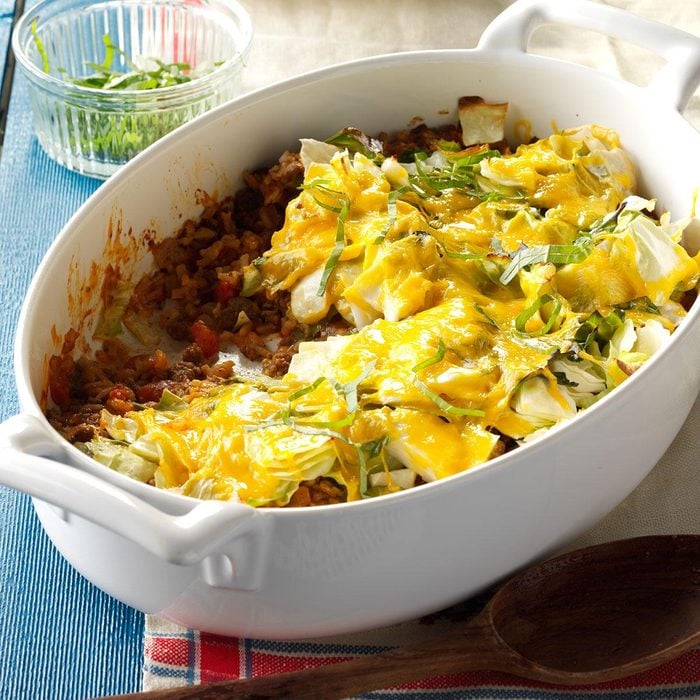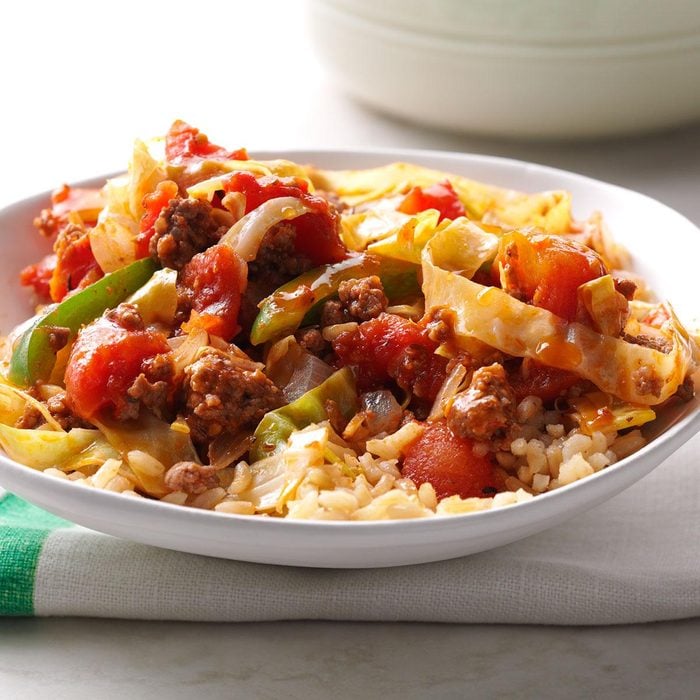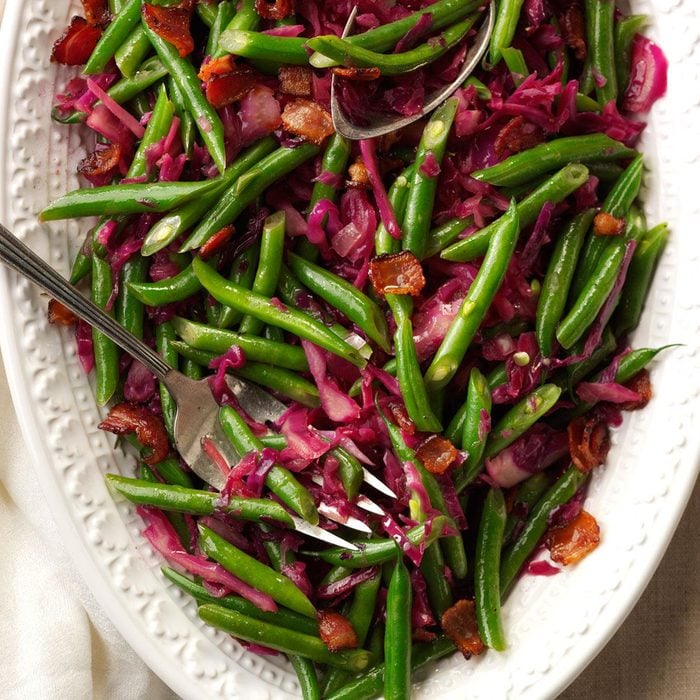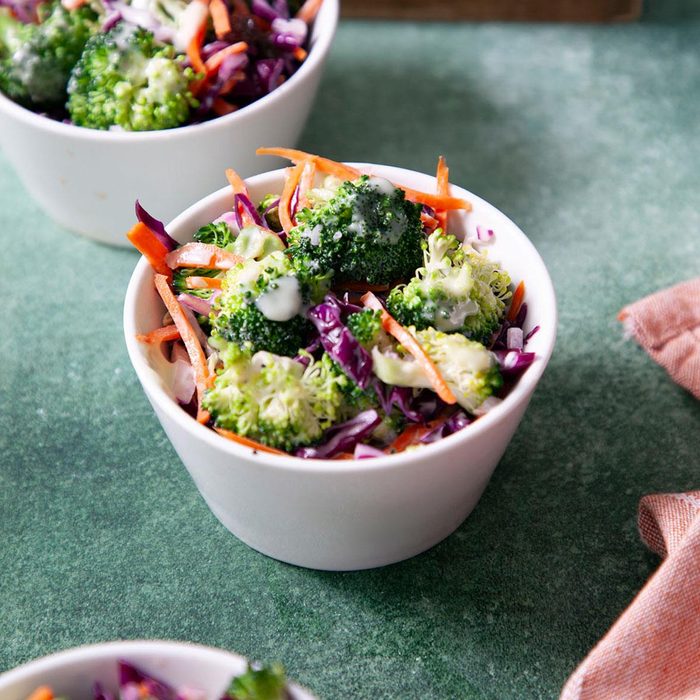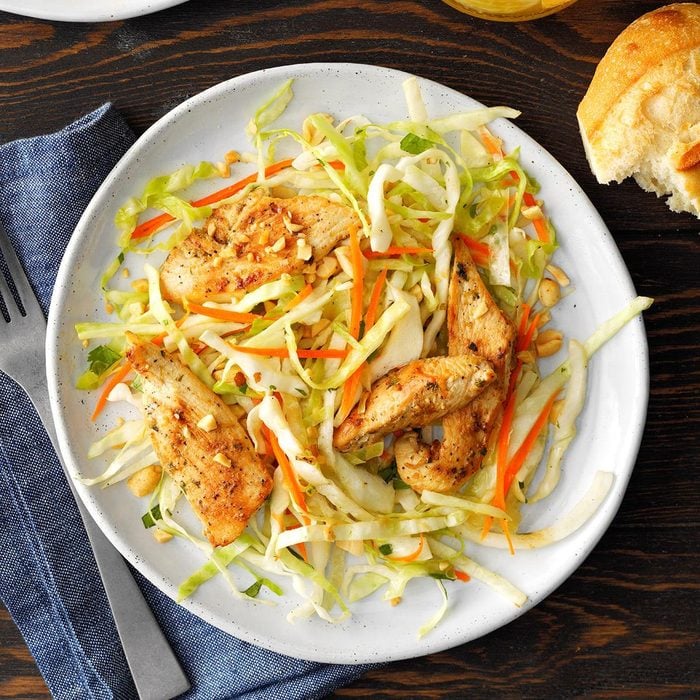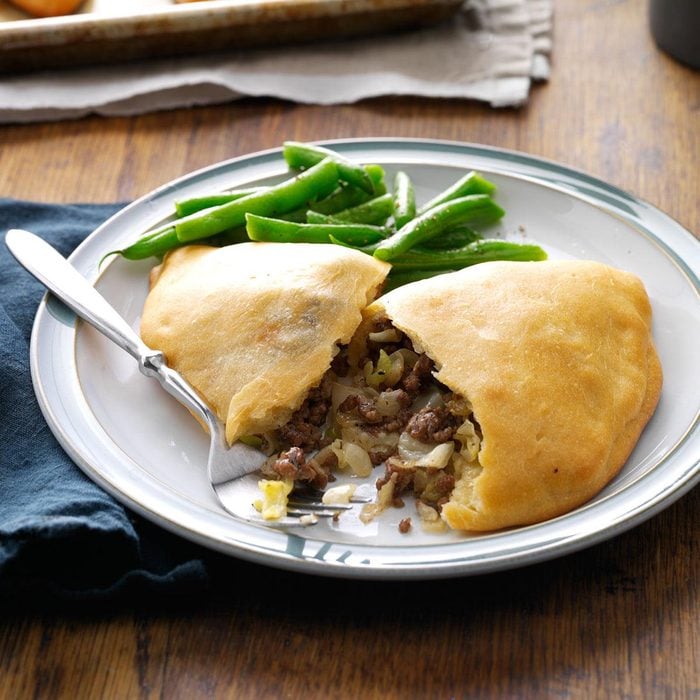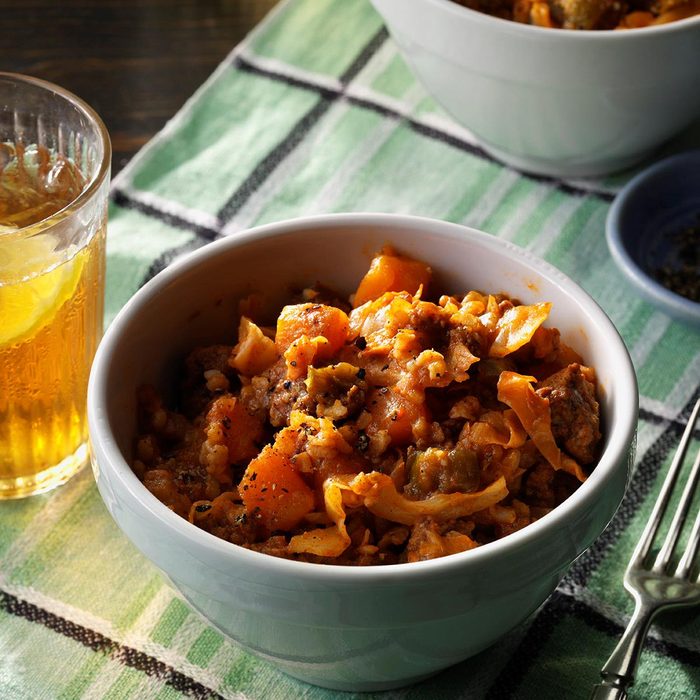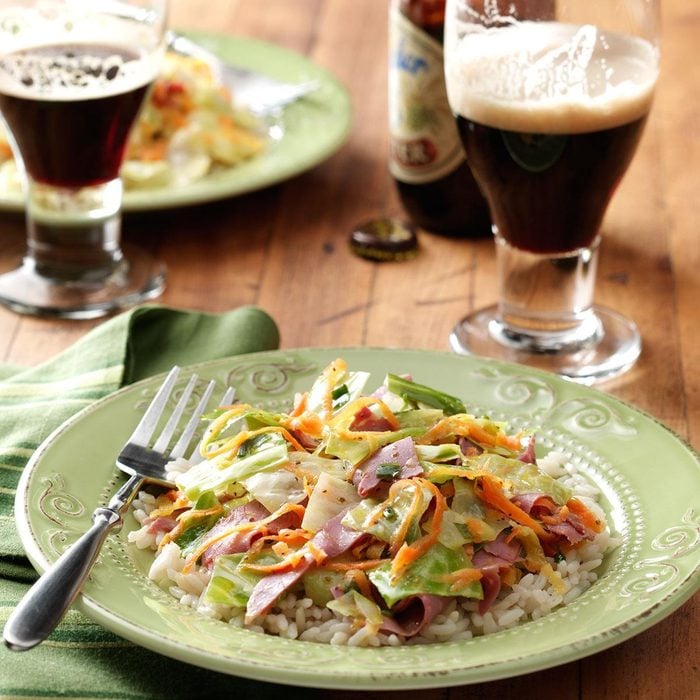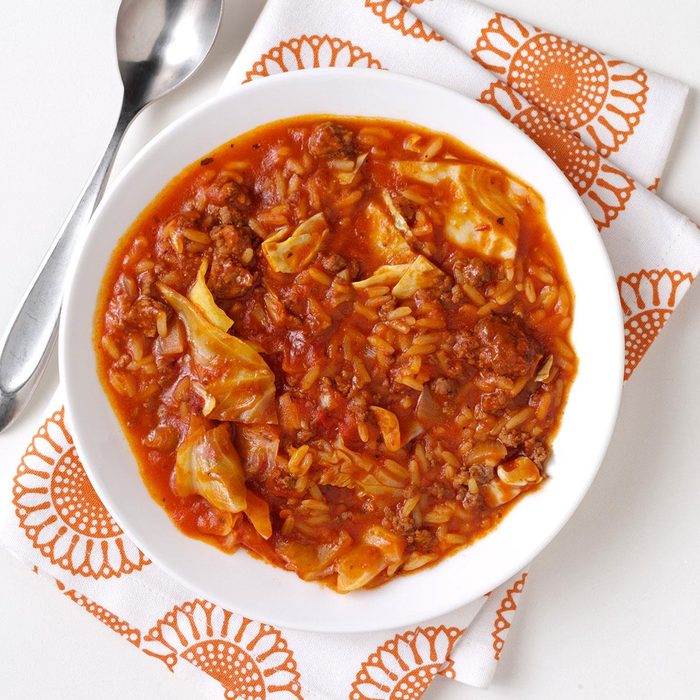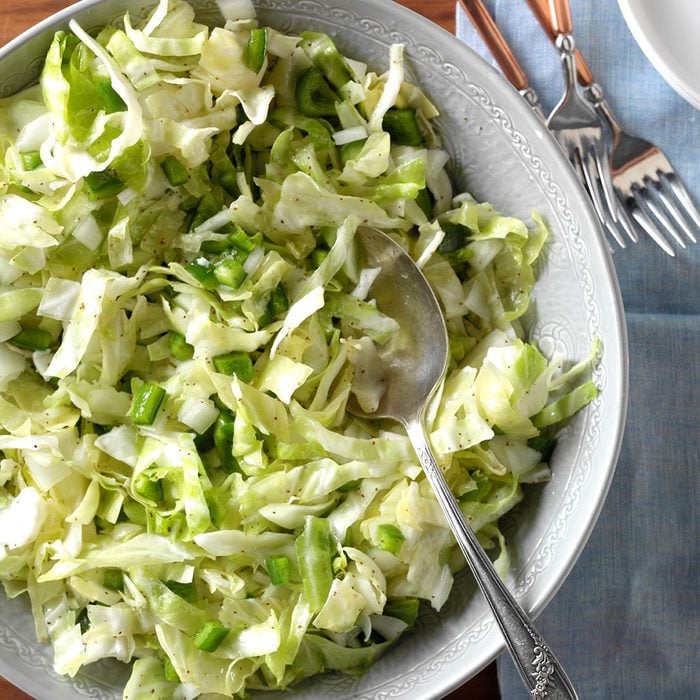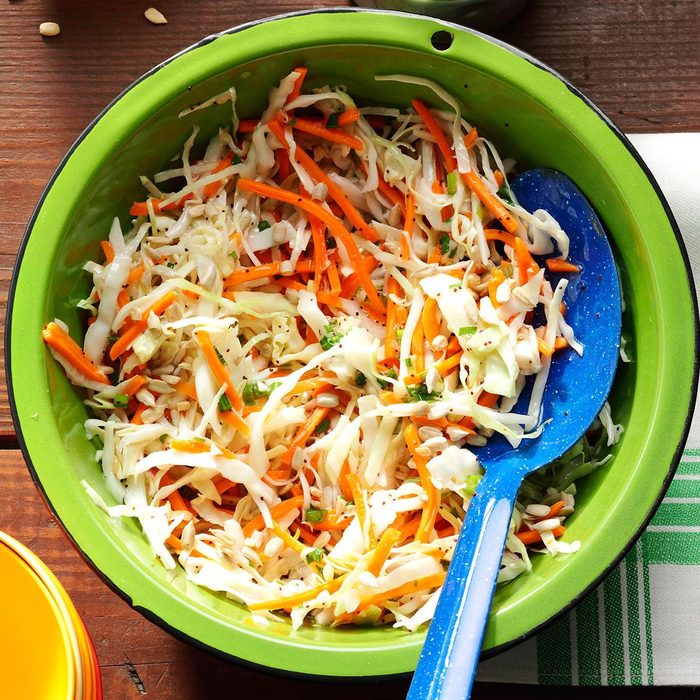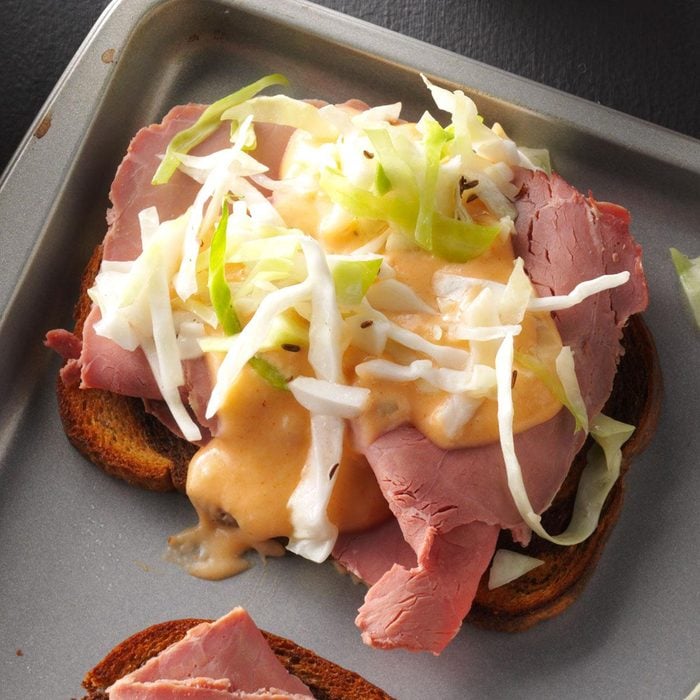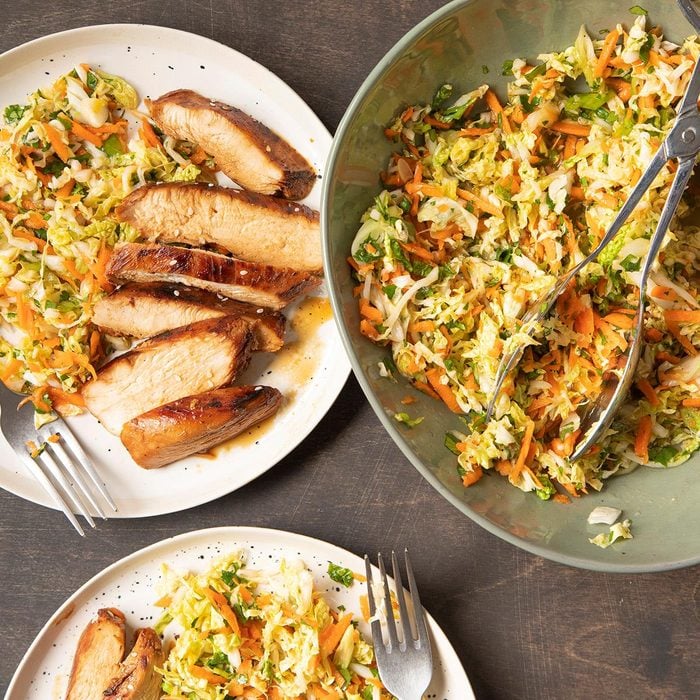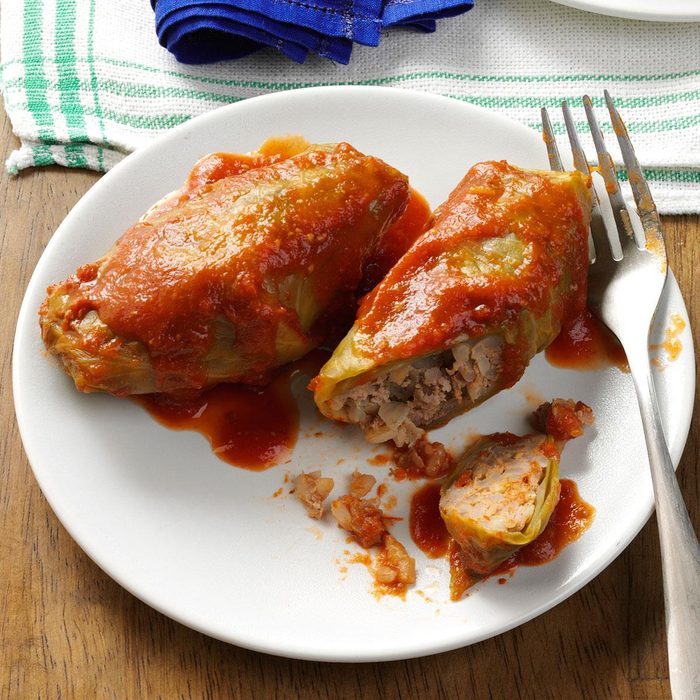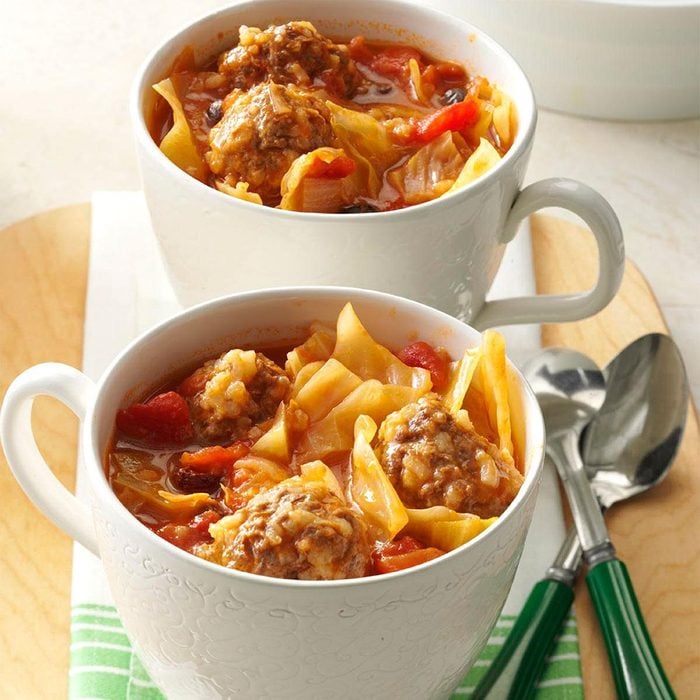Favorite Corned Beef and CabbageThis classic cabbage recipe needs no introduction. Our version includes cider vinegar and freshly grated horseradish for an added depth of flavor. Don't skip the homemade mustard sauce!
Cabbage Roll CasseroleSorry, tuna noodle, we have to try something new! This inventive casserole is flavorful and filling, thanks to ground beef, bacon, tomato sauce, rice, mozzarella cheese, spices and (you guessed it) cabbage.
Warm Cabbage, Fennel and Pear SaladTake full advantage of your farmers market haul. Fennel, cabbage and toasted walnuts are responsible for the delightful crunch in this salad, while pears and honey add sweetness. If you opt not to use the optional brandy or Cognac, toss the pears in lemon juice to preserve their color.
Pineapple ColeslawBring this sweet and tangy coleslaw to a picnic or a potluck, and, like many other
pineapple recipes, it'll disappear in minutes. To make the dish extra fancy, use fresh pineapple instead of canned.
Pork Shepherd’s PieShouldn't every main dish have layers of flavor? This one starts with pork, then is topped with sauteed cabbage, mashed potatoes and shredded cheese.
Grilled CabbageWith only five ingredients and 30 minutes of cooking time, this quick and easy side dish is about to be on regular rotation whenever your grill is fired up. Serve it with burgers, grilled chicken or fish.
German Red CabbageRed cabbage isn't just pretty, it's also nutritious. It's packed with antioxidants, vitamin C, vitamin A and potassium. If you have leftover red cabbage, try using it in another bright dish like this
raspberry slaw.
Contest-Winning Cajun CabbageYou've never experienced cabbage like this before. Here, it's combined with ground beef, peppers, onions, tomatoes, long grain rice, hot sauce and lots of spices, then topped with Colby cheese.
Southern ColeslawHere's a trick to keeping coleslaw from getting soggy. After shredding, toss the cabbage with 1 teaspoon of salt, then place it in a colander set on top of a bowl. Let it sit for one hour to draw out the water, then drain and prepare the recipe.
Cabbage Roll SkilletIf you're craving cabbage rolls but don't have time for the assembly, this cabbage roll skillet hits the spot. For more flavor or heat, add hot sauce to the finished dish.
Roasted Cabbage & OnionsWhile lots of other
roasted vegetables crisp up after roasting, this cabbage dish turns out tender and saucy. This is a great recipe to use when you need to use up lots of leftover cabbage—just pair it with pork or corned beef!
Baja Fish TacosIt's just not a fish taco without a generous sprinkling of shredded cabbage. If you're a cabbage-cutting newbie, check out our
tips for shredding cabbage perfectly every time.
Egg Roll Noodle BowlWhile the idea of making egg rolls at home might seem daunting, you can still get the same taste (and delightful cabbage crunch) with this easy 30-minute dish. Be sure not to skimp on the soy sauce.
Salmon Burgers with Tangy SlawDon't be intimidated by the long list of ingredients. If you have 25 minutes to prep and another 10 minutes to grill, this recipe will be ready just in time for dinner—including the homemade honey mustard!
German-Style Cabbage and BeansOne of our readers recommends making a double batch and taking it to a potluck. Or you could keep it all for yourself and serve it with
pork tenderloin for dinner, as another reader suggests.
Cabbage and Beef SoupChicken noodle? Minestrone? Yawn. We love to eat this warm, hearty dish all year long. You can even freeze the leftovers to eat months later: Separate the soup into serving-size portions, then pop them in the freezer.
Broccoli SlawWe love classic
coleslaw recipes, but there's something fun about switching things up. While the broccoli in this version is the highlight, red cabbage adds a welcome texture and crunch.
Vietnamese Crunchy Chicken SaladIf you've fallen into a salad rut, ditch the Caesar and grab some shredded cabbage. Best of all, cabbage doesn't wilt like lettuce, so you can prep a few batches in advance and eat them for lunch all week.
Midwestern Meat PiesAccording to our reader, this recipe was inspired by a similar meat pie that was made popular at the Runza restaurant chain in Nebraska. While making your own dough probably isn't a usual weeknight activity, save this one for when you're ready for a challenge.
Colcannon PotatoesHearty colcannon potatoes are a staple of any
St. Patrick's Day feast, and every Irish family has their own recipe. Serve this one with carrots, soda bread and lamb chops.
Inside-Out Stuffed CabbagePressed for time? Cut down the prep work by using cubed butternut squash instead of chopping your own. The whole dish will be ready on the table in 30 minutes.
Corned Beef Stir-FryIf you end up with extra corned beef and cabbage on St. Patrick's Day, here's a fantastic way to use up the leftovers. Thinly sliced corned beef is sauteed with cabbage, carrots and green onions, and then served over a bed of rice.
Slow-Cooker GolombkiIf you've never tried golombki, it's time to add it to your dinner rotation. The classic Polish dish features rice, onions, spaghetti sauce, tomato soup and cabbage. Thanks to your trusty slow cooker, dinner is ready whenever you are.
Campers’ ColeslawQuick; you have an hour until the potluck and you forgot to make a dish! Campers' coleslaw uses seven ingredients you probably already have in your pantry and requires only 20 minutes of prep and cooking time.
Creole CabbageAndouille sausage, cabbage, carrots, peppers, tomatoes, bacon and Creole seasoning come together for a quick and easy dish you can easily make on a weeknight, but is fancy enough for a weekend supper. Serve it over rice or with a piece of crusty bread.
Great Northern Bean StewWe love a good
stew recipe! Don't rush the simmering time—while this flavorful stew cooks for almost an hour on the stove, the complex flavor will be well worth it.
Southern Vinegar SlawThanks to white vinegar, celery seed and ground mustard, this delightfully tangy coleslaw is perfect with anything from hot dogs to fish tacos. Time-saving tip: Use coleslaw mix instead of shredding cabbage and carrots by hand.
Meat BunsSave this recipe for a rainy day, when you have enough time to make
yeast dough from scratch. The melted cheese and ground beef filling make this a perfect appetizer to pair with a lighter dinner.
Coleslaw with Poppy Seed DressingMake a double batch of this
barbecue potluck favorite—as it sits in the fridge for a day or two, the flavors really come together and make the dish taste even better.
Makeover Reuben MeltThe key to a quick and easy Reuben melt starts with your broiler and ends with a heap of homemade coleslaw. Just warm the bread in the broiler, add corned beef, broil again and top with cheese and slaw.
Asian SlawWe've never met a coleslaw we didn't like, but this Asian-inspired version made without mayonnaise has become one of our new favorites. White wine vinegar and sesame oil are the star ingredients that bring the slaw together.
Beef & Rice Stuffed Cabbage RollsIf you can roll a burrito, you can make cabbage rolls. They take a little time to prepare, especially if you make them in the slow cooker like this recipe suggests, but the final product speaks for itself.
Freezer SlawIf you always like to be prepared with
freezer meals, this make-ahead side dish is for you. Salt the cabbage and drain any excess liquid, make the dressing, add veggies and transfer to a freezer container. The next time you want coleslaw, just pop it in the fridge to thaw overnight.
One-Pot Unstuffed CabbageCabbage rolls, though delicious, are so time-consuming. On evenings when you want the taste without the effort, here's a one-pot recipe that will definitely hit the spot.
Wilted ColeslawIf you've never tried warm slaw, it's time to find out what you've been missing. And if you need any more convincing, there's bacon in the recipe. Serve it with
baked chicken or
pork chops.
